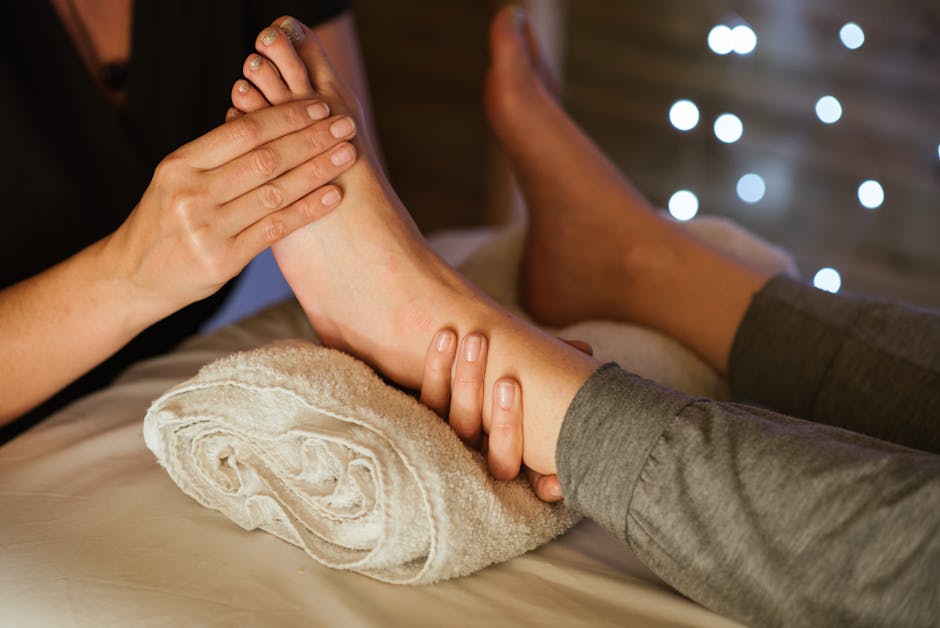Stress, a pervasive element of modern life, significantly impacts physical and mental well-being. Chronic stress contributes to a range of health problems, including cardiovascular disease, weakened immunity, and mental health disorders like anxiety and depression. Fortunately, numerous relaxation techniques can effectively mitigate stress and promote a healthier, more balanced lifestyle. These methods, ranging from simple mindfulness exercises to more involved practices, offer individuals various avenues to manage stress and cultivate a sense of calm.
Deep breathing exercises form a cornerstone of many relaxation programs. Diaphragmatic breathing, also known as belly breathing, is particularly effective. This technique involves inhaling deeply, allowing the abdomen to expand fully, and exhaling slowly and completely. Focusing on the physical sensations of breathing the rise and fall of the chest and abdomen helps shift attention away from anxious thoughts and promotes a sense of groundedness. Several variations exist, including box breathing (inhaling for four seconds, holding for four, exhaling for four, and holding for four), and paced breathing (inhaling and exhaling at a specific rhythm). The consistent practice of deep breathing, even for a few minutes daily, can significantly reduce heart rate and blood pressure, inducing a state of relaxation.
Progressive muscle relaxation (PMR) offers a systematic approach to relieving muscular tension, a common manifestation of stress. This technique involves progressively tensing and releasing different muscle groups in the body, starting with the toes and working upwards. By consciously focusing on the contrast between tension and release, individuals become more aware of their body’s physical sensations and learn to identify and alleviate muscle tension. Regular PMR practice enhances body awareness, reduces muscle soreness, and promotes a sense of overall relaxation. Guided PMR audio tracks or videos can be beneficial for beginners, providing clear instructions and a calming voice to guide the process.
Mindfulness meditation is another powerful technique gaining increasing recognition for its stress-reducing effects. This practice involves focusing on the present moment without judgment, observing thoughts and feelings as they arise without getting carried away. Mindfulness techniques, like focusing on the breath, body sensations, or sounds, help individuals detach from ruminative thoughts and cultivate a sense of calm and acceptance. Regular mindfulness practice improves emotional regulation, reduces reactivity to stress, and enhances self-awareness. Numerous guided meditation apps and online resources are available for those seeking to incorporate mindfulness into their daily routines. Even short, 5-10 minute sessions can yield significant benefits.
Yoga combines physical postures, breathing techniques, and meditation to promote physical and mental well-being. The various styles of yoga, from Hatha to Vinyasa, offer diverse approaches to cultivating relaxation and flexibility. Yoga postures stretch and strengthen muscles, improving physical health, while breathing exercises and meditation help calm the mind and reduce stress. Regular yoga practice improves balance, flexibility, strength, and reduces symptoms of anxiety and depression. Finding a qualified yoga instructor is crucial, especially for beginners, to ensure proper alignment and technique.
Spending time in nature offers a simple yet profoundly effective relaxation strategy. Studies demonstrate that exposure to natural environments reduces stress hormones, lowers blood pressure, and improves mood. Activities such as walking in a park, hiking in the woods, or simply sitting by a body of water can provide a restorative break from the demands of daily life. The sensory experience of nature the sights, sounds, and smells helps shift attention away from stress and promotes a sense of tranquility. Even brief periods spent outdoors can offer significant benefits for mental and physical health.
Creative expression serves as another outlet for stress reduction. Engaging in activities like painting, drawing, writing, playing music, or sculpting provides a means to channel emotions and express oneself creatively. The focus required in these activities shifts attention away from worries, allowing for a sense of accomplishment and emotional release. Creative expression also promotes self-discovery and can lead to improved self-esteem. Exploring various creative avenues to discover what resonates most is key to benefiting from this stress-reducing approach.
Adequate sleep is crucial for overall well-being and plays a significant role in stress management. Sleep deprivation exacerbates stress and impairs cognitive function. Prioritizing sufficient sleep typically 7-9 hours per night is essential for maintaining physical and mental health. Establishing a consistent sleep schedule, creating a relaxing bedtime routine, and optimizing the sleep environment can contribute to improved sleep quality. Avoid caffeine and alcohol before bed, and ensure the bedroom is dark, quiet, and cool.
Social interaction and cultivating strong social connections provide valuable support during stressful times. Sharing feelings and experiences with trusted individuals can help alleviate stress and foster a sense of belonging. Participating in social activities, such as spending time with friends and family, engaging in group hobbies, or volunteering, strengthens social bonds and improves overall well-being. Building a strong support network acts as a buffer against stress and promotes emotional resilience.
It’s important to acknowledge that the effectiveness of relaxation techniques varies among individuals. Experimentation with different methods is crucial to identify what works best for a particular person. Furthermore, integrating several relaxation techniques into a holistic approach can provide a more comprehensive strategy for stress management. Consistency is key; regular practice is essential for experiencing the full benefits of these techniques. If stress is significantly impacting daily life, seeking professional help from a therapist or healthcare provider is advisable. These professionals can offer personalized guidance and support in developing effective stress management strategies. Ultimately, incorporating relaxation techniques into daily life is a proactive step toward achieving and maintaining optimal physical and mental health.
